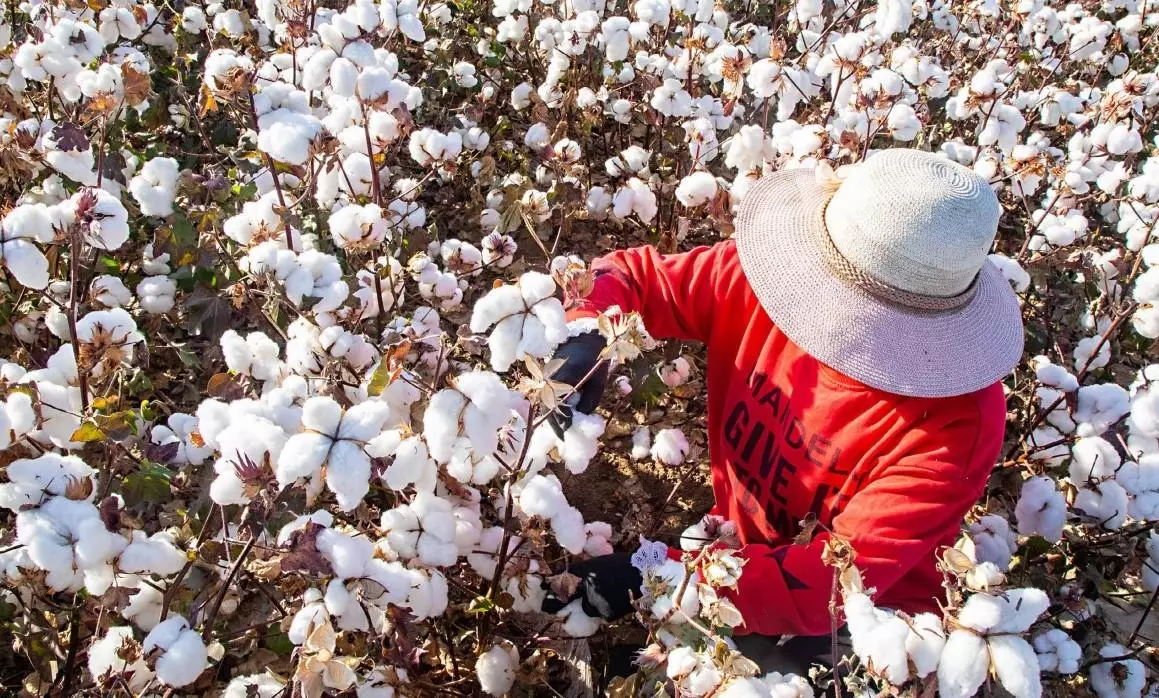
Coercive labour in cotton plantation of Xinjiang: Report
text_fieldsMore than half a million of ethnic minority groups have been forced into labour in Xinyang, the north-western region of China. Around 5,70,000 people from 3 Uyghur regions alone has been compelled to work on cotton plantations through China's coercive labour training in 2018, report shows.
On December 14, 2020, the Centre for Global Policy released a policy report documenting evidence of the labourers forced to pick cotton by their hands in Xinjiang, total labour transfer of ethnic minorities into cotton-picking exceeds several hundred thousand. Out of the 23 per cent of Chinese cotton production in the world, Xinjiang produces over 20 per cent of it. The region yielded 84.9 per cent of whole Chinese cotton production in 2019 while about 70 per cent of the region's cotton fields had to be picked by hand.
The report by Adrian Zenz, the author of Tibetanness under Threat, indicates the production of Xinjiang cotton continues to heavily rely on manual labour, primarily in higher-quality cotton picking, even after worldwide accusations of human rights violations. Evidence subsists that the state's labour transfer scheme is intimidating in key aspects such as recruitment, transfer, on-site management.
Earlier this year, China had published a paper entitled 'Employment and Labor Rights in Xinjiang', specifying its "poverty alleviation efforts" that is tainted as forced labour and violation of human rights by activists. It said that the government provided vocational training sessions to an average of 1.29 million workers. The paper showed that of the 103,300 farmers from southern Xinjiang region, 98,300 of them were employed as reinforced by the training.
Zenz in his report urges the governments to put a Withhold Release Order on any product that contains cotton from any part of Xinjiang and to be proactive in related monitoring procedures. Products with Chinese cotton needs to be carefully scrutinized and companies should be required to thoroughly study the role of Chinese cotton in their supply chains, given that production takes place inside or outside China.
Another report released by the Office of the Prosecutor (OTP) on Monday stated that the International Criminal Court (ICC) could not take further the case of the Uyghurs as China not being a part of their territorial jurisdiction.























